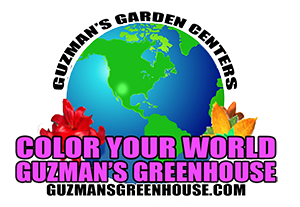Last updated on June 8th, 2025 at 07:22 am
A Comprehensive List of Organic Pesticides for Effective Pest Control
List of Organic Pesticides for Pest Control. Organic pesticides are essential for maintaining a healthy garden without introducing harmful chemicals. They’re not just better for the environment—they’re also safer for you, your family, and your pets. This list provides a detailed look at various organic pesticides, helping you make informed decisions for effective pest management.

List of Organic Pesticides
1. Neem Oil
Neem oil is a widely trusted organic pesticide derived from the neem tree. It works by interfering with insects’ feeding and reproduction cycles, making it a versatile solution for a range of pests like aphids, whiteflies, and spider mites. Mix neem oil with water and a bit of mild soap for a spray that can be applied to affected plants. Neem oil kill to insects on plants.

Tip: It’s also a natural fungicide, making it valuable for managing diseases like powdery mildew.
For more pest control ideas, check out how to keep garden pests out.
2. Diatomaceous Earth (DE)
Diatomaceous earth is an effective mineral-based pesticide. It’s made from fossilized algae and works by dehydrating pests like slugs, ants, and beetles. Simply sprinkle DE around the base of plants or areas where pests are present. Make sure to use food-grade DE for safety.
Learn more here at; Wikipedia
Important Note: Apply only on dry days as moisture reduces its effectiveness.
3. Bacillus Thuringiensis (Bt)
Bt is a microbial pesticide that targets specific pests like caterpillars, without harming beneficial insects. It’s particularly useful for tomato hornworms and cabbage loopers. Spray it on leaves where pests are actively feeding. Bt’s targeted action ensures it’s safe for pollinators and other garden allies.
4. Garlic Spray
Garlic spray is a simple, DIY organic pesticide. It repels pests with its strong odor, making it effective against aphids, ants, and grasshoppers. Blend garlic cloves with water and a small amount of dish soap, then strain and spray directly on plants. Most nurseries have this in stock in Ready to Use bottles.
Tip: Use it as a preventive measure to discourage pests from settling in your garden.
5. Horticultural Oil
Horticultural oil suffocates soft-bodied insects such as scale, whiteflies, and spider mites. It is highly refined and safe for most plants. Dilute the oil with water according to the manufacturer’s instructions and spray on affected areas.
Bonus: It also helps manage sooty mold and other fungal diseases.
6. Soap Sprays
Simple soap sprays are excellent for dealing with soft-bodied insects like aphids and mealybugs. They’re easy to make—just mix liquid dish soap with water and spray it on infested plants. The soap breaks down the pests’ protective coatings, eventually killing them.

Pro Tip: Opt for biodegradable soap to minimize environmental impact. How to use Insecticidal Soaps
7. Sulfur
Sulfur is a mineral-based option that’s often used for managing fungal diseases like rust and powdery mildew. It also deters pests like mites and thrips. Apply sulfur powders or sprays carefully, since overuse can harm plants.
8. Pyrethrin
Derived from chrysanthemum flowers, pyrethrin is one of the most effective botanical pesticides. It targets a wide range of pests, including mosquitoes, flies, and beetles. Use it sparingly to avoid harming beneficial insects.

9. Beauveria Bassiana
This naturally occurring fungus works as a microbial pesticide. It infects and kills pests like thrips, aphids, and whiteflies. Once applied, it multiplies on pests, spreading rapidly. It’s an excellent option for integrated pest management (IPM). Learn more about this organic fungal pesticide at Wikipedia.
10. Essential Oil Sprays
Essential oils like peppermint, tea tree, and rosemary can repel pests while smelling great in your garden. Mix a few drops of oil with water and a mild soap to create a spray. These oils are particularly effective against ants, fleas, and mosquitoes.
11. Cinnamon Oil
Cinnamon oil disrupts pests’ feeding patterns, making it a natural deterrent for ants and other small insects. Use it to create barriers around areas you want to protect. More on Cinnamon Oil to repel insects.
12. Homemade Tomato Leaf Spray
Tomato leaves naturally contain compounds that are toxic to aphids and other pests. Soak chopped leaves in water overnight, strain them, and use the solution as a spray. The result is an affordable, highly targeted pesticide.
13. Trichoderma Species
Trichoderma fungi protect against soil-borne pathogens and harmful insects. This microbial pesticide is gaining popularity for its dual benefits of pest control and soil health improvement.
14. Rotenone
Rotenone is a botanical pesticide extracted from certain plants. It works by interfering with pests’ nervous systems, making it effective against beetles and caterpillars. Use with caution, as it can also harm aquatic organisms.
15. Pheromone Traps
While not a pesticide in the traditional sense, pheromone traps help control pest populations by disrupting mating cycles. They’re particularly useful for moths and other flying insects.
Conclusion
Switching to organic pesticides isn’t just a safer option—it also supports long-term environmental health. With a range of options like neem oil, diatomaceous earth, and garlic spray, you can manage pests effectively without harming beneficial organisms or the environment. For more tips on keeping your garden pest-free, refer to how to keep garden pests out. Be proactive in your approach by combining these methods with good gardening practices.

Greenhouse Manager, Master Gardener, and Webmaster.
If you have any questions or enjoyed this post, feel free to share your thoughts in the comments below.




